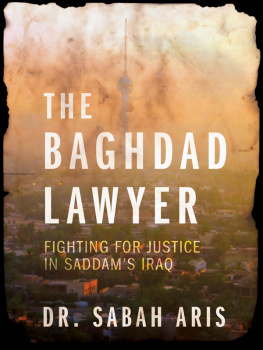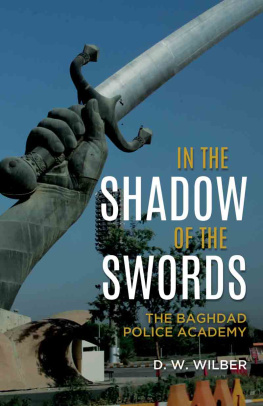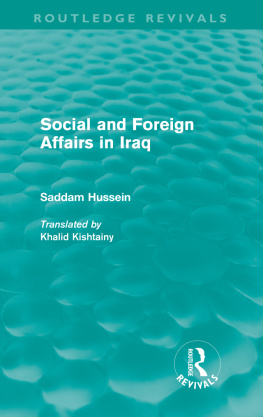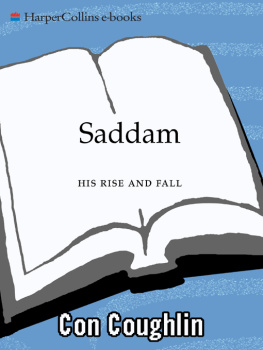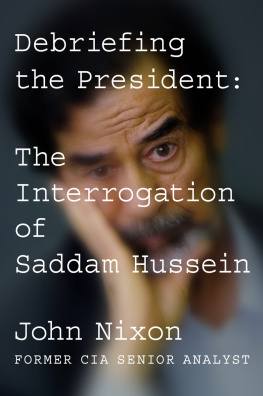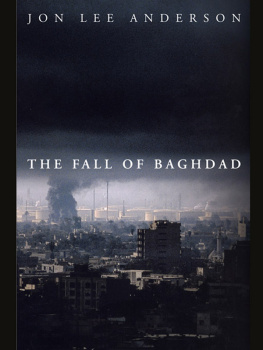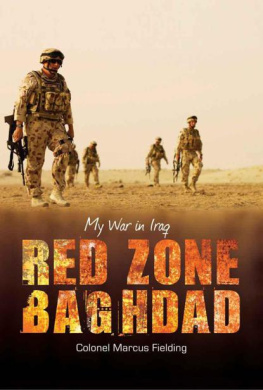For he that holds his kingdom holds the law.
PROLOGUE

There is a higher court than courts of justice and that is the court of conscience. It supersedes all other courts.
Mahatma Ghandi
T HEYRE GOING TO KILL HIM, doctor. My father says that you can help. Will you return to Baghdad to save him?
It was the early hours of June 15, 2006. I had just returned home from the casino and was on the verge of going to bed, but the man who spoke to me on the telephone in an urgent tone now had my attention.
How did you find out about me? I whispered, quietly shutting my office door, not wanting to wake my wife who was asleep upstairs.
My father said that you were once one of the best lawyers in Iraq, the man quickly answered, with a hint of desperation in his voice. He has asked for you personally. Without your help, he has no hope.
I was flattered. My criminal law office in Baghdad had once been very successful, but I had been semi-retired now for over fifteen years. It had been a long time since I had been before a criminal court. Was I really ready to work on a case that had the eyes of the world upon it, the so called trial of the century, the trial of Saddam Hussein? I wasnt sure.
I will consider your request very carefully, I said, hearing the man sigh with relief. Please call me tomorrow. There are a few things I need to think over first.
As the man thanked me profusely, I hung up the phone, my head spinning. It was hard to take in what had just happened. Sitting behind my oak desk, I put my fingers to my temples and tried to digest it all.
Having left Iraq just before the Gulf War, I had lived a peaceful life in the United Kingdom. Despite being semi-retired, I had continued to work on a few legal matters, but in comparison to my Baghdad days, they were relatively minor. I had come to accept that my days as a swashbuckling trial lawyer were at an end. I was now in my seventies. My time had come and gone. Yet this was an opportunity to get back to what I did best, a chance to act on the biggest stage of all. It was hard not to be tempted.
Perhaps the most compelling reason to return, however, was that I truly believed that my potential client, Saddams co-defendant, Awad Hamed al-Bandar, was innocent.
When I had worked as a criminal lawyer in Baghdad, al-Bandar had been at the top of the legal treethe president of Iraqs Revolutionary Court. Many times I had argued cases before him and had found him a just, fair, and virtuous judge. Even though he answered directly to Saddam himself, al-Bandar seemed very much his own man. He was certainly someone I respected.
The more I thought about the trial, the more I got worked up. By the morning, I was ready to pack my bags to make my way to Baghdad, but my wife, Aida, made me think again. What do you think you are going to do, Sabah? she shouted, trying to get me to see reason. You could put on the best courtroom performance of your life, and it wouldnt make any difference.
I had to admit, she had a point. I had once been one of the most feared criminal lawyers in Baghdad. It was a profession that had led me to work on some of the most horrendous and complex legal cases, usually under intense pressure. I had certainly earned my dues. Nevertheless, I had to acknowledge that this was in a different league altogether.
As I pondered this point, Aida continued to ram home the folly of the idea. Two of the lawyers in this case have already been murdered, she warned, her anger bringing her close to tears. Do you want to be next? Again, she was right. Two defense lawyers had mysteriously been killed just days into the trial.
Lowering her voice, Aida took my hand, looked me in the eyes, and pleaded with me to come to my senses. We have a good life here, Sabah. You have a nice home. You are surrounded by friends and family. Why do you want to put all of that at risk?
As she spoke, I looked at a picture of my late father, Edward, that I had lovingly hung on the wall above my desk. Looking at him peering out at me with his broad, kind face, I wondered what he would want me to do.
In the early years of my career, my father had been my greatest supporter. For hours he would sit in the courtrooms of Baghdad watching me plead for the lives of my clients, who were often accused of the most horrific offenses. No matter what they were said to have done, my father always preached to me the virtue of a fair trial. If a man is given a fair trial, he would say, then justice will inevitably follow. It was a nice concept, one with which I agreed in principle, but I had learned the hard way that fair trial or not, justice was not always the end result.
I was torn. In my heart I desperately wanted to go, but in my head I knew that it would be a huge risk. My career had led me to some dark places, but this had the potential to be the darkest of all. Baghdad was now a war zone. Nearly every day stories emerged of yet more atrocities. Even if acting on the case itself didnt put my life in danger, just merely being in the city was a hazard in itself.
Despite my concerns, I realized that this certainly wouldnt be the first time that I had put my life on the line in the name of justice. During my time in Baghdad I had worked on some horrendous cases involving murderers, pedophiles, and honor crimes. Indeed, such was the danger involved that I had been forced to carry a gun in order to ensure my safety. This was just a way of life for a lawyer in a country where trouble was never far away. As I reflected on this, I realized that almost right from the start, I had learned that a lawyers life was cheap on the streets of Baghdad
THE FIRST STEPS

The first requisite of civilization is that of justice.
Sigmund Freud
O N THE FIRST DAY OF MY legal training, I was shot in the head. As I lay poleaxed on the dry, cracked mud, I put my hand to my dust-covered face and felt warm blood trickle through my fingertips. Running my bloodied hand along my scalp, I feared that half my head had been blown off.
The boss has been shot! I heard one of my workers cry out as he put his hand under my arms and tried to drag me away. Quickly! Quickly! Help me lift him.
Rushing to my side, my workers tried to shelter me from any further attacks as bullets and stones continued to rain down on our camp. I knew that I might face a difficult reception, but this was crazy. Sheltering from the bombardment with my head split open, I began to think that perhaps I had bitten off more than I could chew. Less than twenty-four hours after I had arrived, I was already seriously considering returning to the relative safety of Baghdad, if I even managed to survive that long.
Not long before this event I had dreamt of going to university and training to become a lawyer. This had been my fathers wish for as long as I could remember. But fate had intervened. Now fate had left me lying in a pool of my own blood with any plans I had of becoming a lawyer seemingly in tatters. So how did I get myself into this situation?

